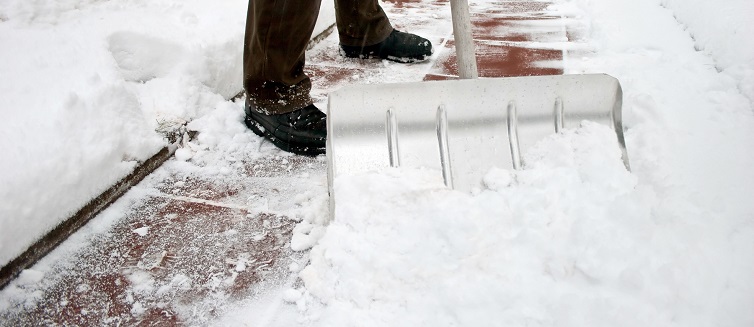Preventing falls is an important way to avoid injuries year-round, but winter’s snow and ice increase the risk of falling, especially for older adults. When an older person falls once, he or she is more likely to fall again, making fall prevention even more important.
In fact, among older adults, falls are the leading cause of death and the most common cause of nonfatal trauma-related hospital admissions, according to the National Council on Aging.
Never Miss a Beat!
Subscribe to Our HealthBeat Newsletter!
Thank you for subscribing!
You can now select the specific newsletters you'd like to receive.
You are already subscribed.
Subscribe to more newsletters in our email preference center.
Sorry, an error occurred. Please try again later.
Get Healthy Tips Sent to Your Phone!
How Can You Prevent Slips and Falls
Many factors can contribute to falls in icy conditions. Knowing how to prevent falls can help you stay safe. Here are some tips:
- Ask for help. Whether you live in Pittsburgh, Erie, or another cold city, ask a family member, neighbor, or friend to sprinkle salt or other “ice melters” on slippery steps and sidewalks and along the path to your car.
- Use your hands wisely. Hold onto railings, furniture, fences, and anything else available to maintain your balance – it’s easier to prevent a stumble than to recover from one. Avoid carrying things in your hands, too. Use a cross-body shoulder bag, fanny pack, or backpack instead of a handbag or tote bag so you’ll have your hands free to catch yourself.
- Have things delivered. When the weather is bad, avoid going outside. Instead, have your medication, groceries, and other necessities delivered to your home. Look into which of your local drugstores and supermarkets deliver and how the system works.
- Wear the right shoes. Preventing falls often comes down to proper footwear. Make sure you are wearing shoes with good anti-slip soles, like running shoes or winter boots. Be sure the tread of your sneakers has not worn away and still has a good grip. You may want to consider shopping (online or in person) for traction cleats to attach to your shoes or boots during the worst of the winter weather.
- Exercise regularly. Remaining active is important not only for overall health but also to reduce the risk of falling. Aim to walk 30 minutes a day most days of the week — but don’t walk outside when it’s too icy or slippery. Yoga is also a great way to improve your balance and flexibility, both of which can help to prevent falls.
- Check your medications. Some medications can cause dizziness or drowsiness, which in turn can increase your risk of a fall. Know the side effects of your medicine, and ask your doctor if there may be an alternative with fewer side effects. Be careful when you stand up, and always use handrails on stairways.
- Always wear your glasses or contact lenses. Vision problems can lead to falls. Always grab your glasses for middle-of-the-night bathroom breaks, and take it slow getting out of bed first thing in the morning.
Talk to your doctor about other ways you can prevent falls to stay safe this winter. You can always reach out to the UPMC Aging Institute at 866-430-8742 with questions.
If you have questions about full, in-network access to UPMC doctors and hospitals, please call our help line at 1-855-946-8762.
About UPMC Senior Services
UPMC Senior Services provides resources for older adults, their loved ones, and caregivers at every stage of the aging process. We connect them with educational programs and learning opportunities to help support them, using our services to help seniors live longer and healthier lives. We partner with other organizations to determine the biggest challenges facing seniors and work to overcome them. We also work to inform in-home caregivers, hospital clinicians, and staff about the biggest challenges seniors face, striving to improve care. To learn more about our mission, visit our website.
